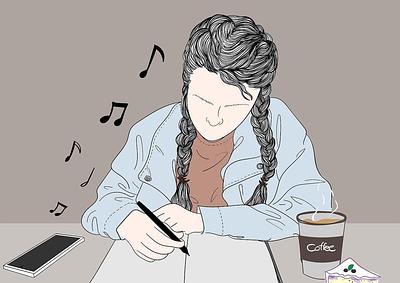Looking for all Articles by William Letford?
How to get started writing poetry in Scots
Poet and previous New Writer Awardee William Letford shares his top tips for writing poetry in Scots

You want to write poetry in Scots? Great, I'm absolutely delighted to hear it and you're heading in a direction that's full of mischief and joy. Before we start on the words of wisdom and advice let me give you the good news and the bad news.
- The good news is – there are no rules.
- The bad news is – there are no rules.
How to handle the no rules conundrum
I took part in a panel discussion at a poetry festival. There were three participants (myself included). We arrived at the venue ten minutes before the audience were invited to take their seats. The host for event welcomed us and made us feel comfortable and we sat at the table and placed our books and shuffled our papers then asked, What's the format for the event? The host replied, Well, that's up to you, play it as you see it, whatever is best for you is good for me.
Cue the confusion on the participants faces (myself included). Eh! The audience arrives in ten minutes, and you want us to make it up on the spot?
After the small shock had passed, we discussed the format with the host and with each other and within a couple of minutes had the whole thing locked in. Plenty of time to sit back and relax before the audience arrived. So why the minor panic? We panicked because we expected there would be rules to guide us.
We live in a world of rules and formats. Every day we follow directions. Even a pavement is a pathway that directs us. But when it comes to your creativity as an artist writing in Scots – You make the rules. You create the formats. You lay the pathways that will direct you.
Let me prematurely jump to the conclusion of this resource and give you some advice that you're already familiar with. When it comes to writing poetry in Scots – Well, that's up to you, play it as you see it, whatever is best for you is good for me.
Before you throw your phone or laptop at the wall, or scrunch up this piece of paper and sigh, What's the point? Let me give you some tools that might help you find your way within the no rules conundrum.
Listen
Listen to the way the people around you speak. Notice the difference in the accents. Glaswegians and Fifers and Aberdonians and people from every corner of Scotland are all rich in their own sounds. Don't see the word as it's written in Standard English. Hear the distinct sound and picture the word from there. Head or Heed. Bright or Bricht. Wain or Bairn. Radge or Tumshie. Most important of all – listen to the way you speak. This will be your go-to dictionary of sound and the easiest vocabulary to conjure on the spot.
Read
Read the work of writers that use the Scot's language. Decide what you like and don't like. If you look at their words critically you might think – that's not the way I say it. Then you can ask yourself the question – how would I say that word?
Dig
You'll notice the words and phrases your friends use are different to the words and phrases that your parents use. The Scots language that comes from your Grandparent’s generation will be different to that. You might have a crazy uncle or an eccentric aunt that spit out weird pieces of advice in Scots. Dig inside your mind and drag them up. Dig from the present and from the past. Make a box for treasure in your head and fill it.
Sing
Take some time to listen to languages you don't understand. If you can't speak Arabic, it gives you the ability to listen to that language as a sound – as a piece of music. Compare Arabic to Italian or French or Korean. Hear the way the music changes between languages. Then take your newly educated ears and listen to the difference in Scots and Standard English. Head and Heed may have the same meaning, but the altered sound (especially in poetry) gives the word a different impact. The sound hits a different note. Hear the music in your version of Scots and sing your own song.
Enjoy
If there are no rules. If there are no formats. If you lay the pathways that direct you – it means you're free. It's up to you. Play it as you see it. Whatever is good for you is good for me. Have fun. Enjoy the adventure.